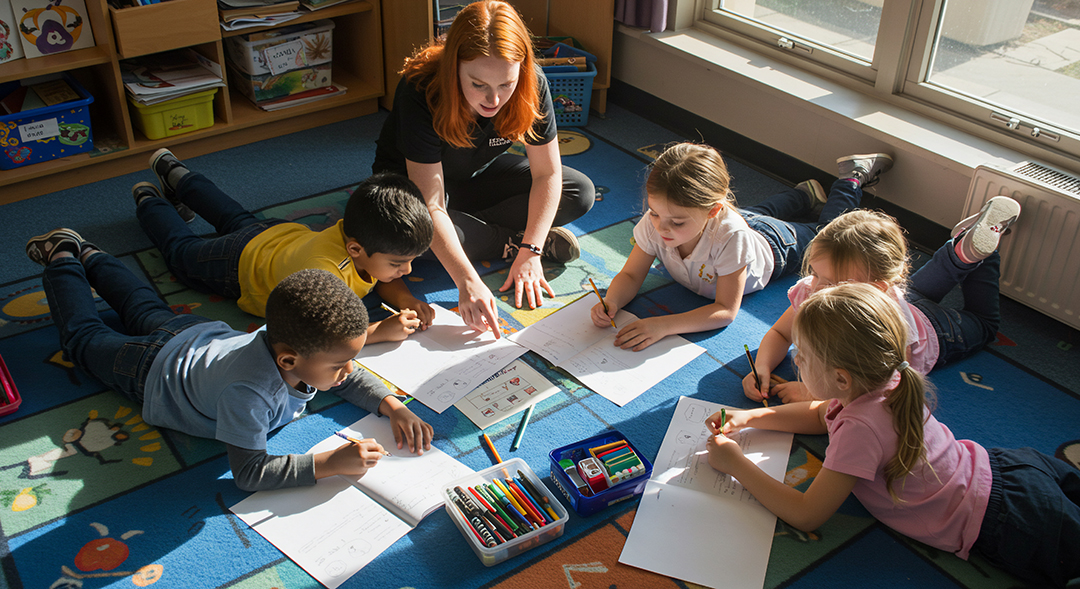Parents’ Expectations from the Teacher and the Role of Play in Effective Education
The relationship between parents and teachers is one of the core pillars of children’s educational success. This connection directly influences not only the quality of learning but also the development of students’ character, motivation, and social growth. Today, parents expect teachers to move beyond traditional teaching methods and use modern approaches—such as play and interactive activities—to make learning more engaging and effective for children.
Parents’ Main Expectations from Teachers in Today’s Schools
In recent decades, the role of the teacher has shifted from a knowledge transmitter to a learning facilitator. Parents expect teachers to focus not only on academic content but also on the child’s holistic development.
1. Creating a Safe and Friendly Learning Environment
The school should be a place where children feel safe, respected, and free to express themselves. Teachers who respect individual differences earn parents’ trust.
2. Effective Communication with Families
Parents want teachers to regularly inform them about their child’s academic progress and behavior. Short conversations, school messages, and counseling sessions are important tools for maintaining this communication.
3. Using Innovative Teaching Methods
One of parents’ biggest demands is moving away from rigid, memorization-based methods and replacing them with play, experience, projects, and hands-on learning. They want their child to be engaged in learning, not just a passive listener.
Why is Play Important in the Learning Process?
Play is not just a recreational activity—it is one of the most powerful methods of learning. Through play, children explore new concepts, strengthen their social skills, and enjoy stress-free educational experiences.
Benefits of Using Play in Education:
-
Increased attention and motivation
-
Deeper understanding of concepts through hands-on experience
-
Strengthened cooperation, healthy competition, and mutual respect
-
Transforming the classroom into an active and engaging environment
Types of Effective Educational Games in the Classroom
1. Thinking and Problem-Solving Games
Games like number puzzles, group word-building, or “guess the picture” help boost concentration and logical thinking. Teachers can use these games to review lessons.
2. Physical and Team-Based Games
In primary school, movement plays a key role in learning. Games such as story role-playing or completing group missions strengthen communication skills and self-regulation.
3. Creative and Artistic Games
Activities like designing crafts, group painting, or creating short plays not only stimulate creativity but also build children’s confidence. Teachers can also incorporate moral concepts into these games.
The Role of Parents in Supporting Play-Based Learning
Effective learning happens when parents continue the same educational style at home. Family games can help review school concepts in a fun way.
Simple Suggestions for Parents:
-
Reinforcing lessons through play (e.g., counting objects or finding words at home)
-
Appreciating effort instead of results—just like in games, where learning matters more than winning
-
Participating in group games with their child to strengthen emotional bonds and empathy
How Can Home–School Communication Be Strengthened?
One of parents’ ongoing concerns is staying informed about their child’s school life. Clear communication between teachers and parents creates consistency in educational approaches and prevents behavioral inconsistencies in the child.
Effective Strategies:
-
Creating a communication notebook between home and school
-
Forming parent groups in messaging apps for coordinating activities
-
Inviting parents to school events such as games or performances
Frequently Asked Questions About Play and Parents’ Expectations
Why do some parents oppose play-based learning?
Some parents still hold traditional views of education and believe play hinders learning, whereas research shows that play leads to deeper understanding and greater motivation.
What types of games are most suitable for classroom use?
Games with clear educational objectives, proper timing, and opportunities for all students to participate. Group, interactive, and creative games work best.
How can parents support teachers in implementing educational games?
By providing simple materials (cards, cardboard, images) and encouraging their child to participate in class games.
Conclusion
Children’s educational success is achieved when the home and school work together in a unified educational direction. Parents should understand that teachers are not only academic instructors but also their partners in upbringing. Likewise, teachers—by using tools such as educational games—can help ensure that concepts become lasting in students’ minds. This two-way interaction is the key to effective and sustainable learning.







